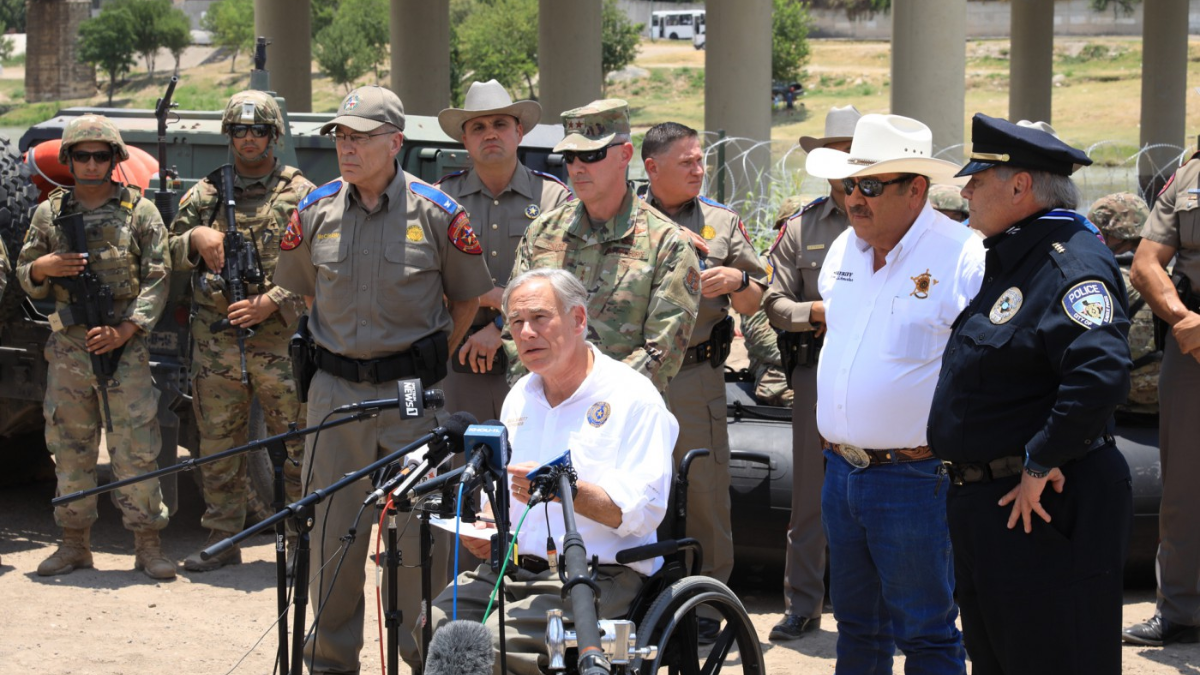In a bold move aimed at strengthening immigration enforcement, Texas Governor Greg Abbott announced the deployment of Texas Department of Public Safety (DPS) troopers and special agents to assist federal efforts. This initiative underscores Texas’ ongoing commitment to addressing illegal immigration challenges at both the state and federal levels.
Details of the Deployment
Governor Abbott revealed that DPS personnel will be collaborating with Homeland Security Investigations (HSI) to identify and apprehend undocumented individuals. According to Abbott, this initiative reflects a proactive approach to enhance security and uphold the law in communities across Texas.
The governor emphasized the importance of state-federal partnerships in tackling immigration issues, especially as border states face growing concerns over undocumented immigration. Abbott stated, “Texas will not stand idly by as our communities are impacted. We are stepping up to provide the support necessary for law enforcement to succeed.”
This deployment builds on existing efforts, including Operation Lone Star, which mobilized National Guard troops and DPS officers to the Texas-Mexico border in 2021.
A History of Border Security Initiatives in Texas
Governor Abbott’s administration has prioritized border security and immigration enforcement, often taking unprecedented measures. Operation Lone Star marked a turning point, with significant financial investments and manpower deployed to secure the border.
This latest move expands the scope of state involvement in federal immigration efforts, further demonstrating Abbott’s focus on addressing the perceived gaps in federal enforcement.
Public and Political Reactions
The announcement has drawn a mixed response from various stakeholders. Supporters praise the deployment as a necessary step toward ensuring safety and enforcing immigration laws. Proponents argue that the initiative protects local communities while reinforcing federal enforcement capabilities.
Critics, however, express concerns over the potential consequences for immigrant communities, including fears of over-policing and racial profiling. Advocacy groups have called for transparency and accountability in the implementation of such measures to avoid unintended harm.
The Broader Context of Immigration Enforcement
Texas has been at the forefront of the national immigration debate, often setting the tone for other states. Governor Abbott’s approach reflects a belief in state-level intervention to address issues traditionally managed by federal authorities.
This deployment aligns with the broader push for stricter enforcement under previous administrations, echoing policies aimed at deterring illegal crossings and enhancing deportation efforts.
Potential Impact on Immigration Policy
The collaboration between Texas DPS and federal agencies could serve as a model for other states grappling with similar challenges. It highlights the evolving role of states in addressing immigration issues, a traditionally federal responsibility.
However, questions remain about the program’s long-term efficacy and potential implications for state budgets. Critics warn that such initiatives may strain resources and divert attention from other pressing local issues.
What’s Next?
As the operations unfold, Texas officials will monitor their effectiveness and make necessary adjustments. Governor Abbott has indicated that this is just the beginning, with further expansions of the program likely.
The initiative signals a firm stance by Texas on immigration enforcement, reinforcing the state’s commitment to protecting its borders and residents.
For more updates on Texas’ immigration policies and enforcement measures, visit Texas.gov.
Disclaimer – Our team has carefully fact-checked this article to make sure it’s accurate and free from any misinformation. We’re dedicated to keeping our content honest and reliable for our readers.








